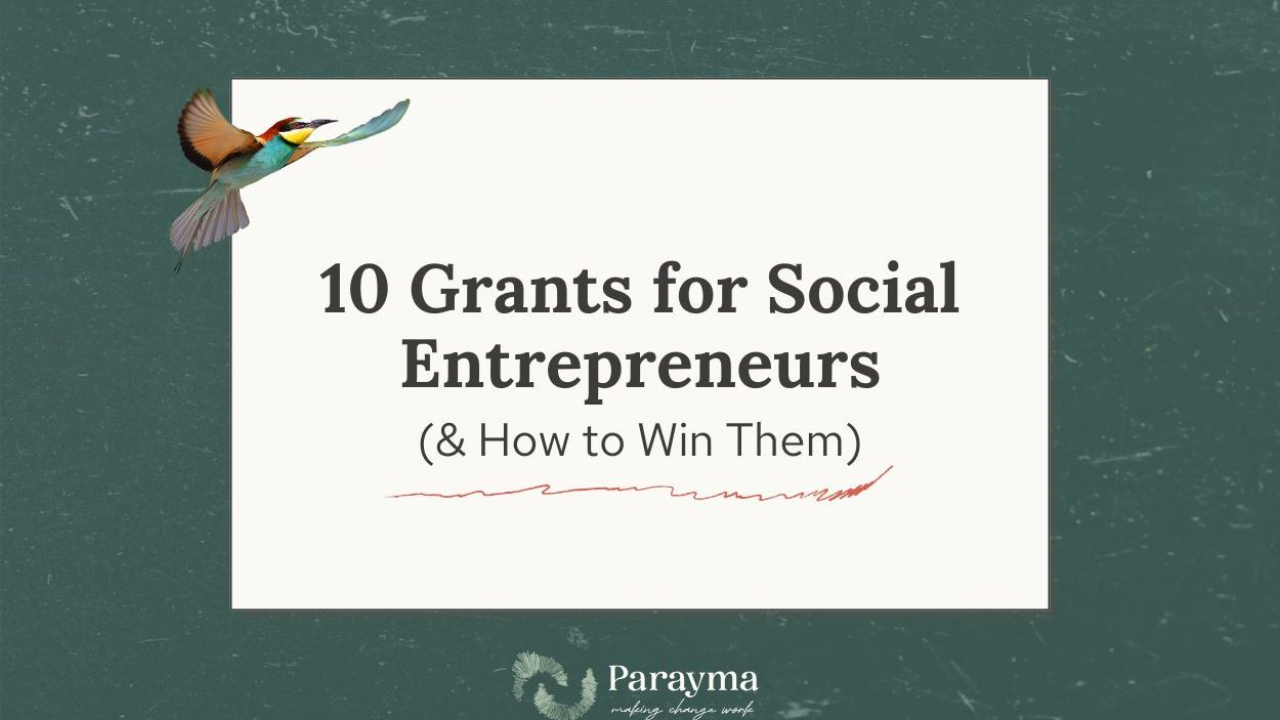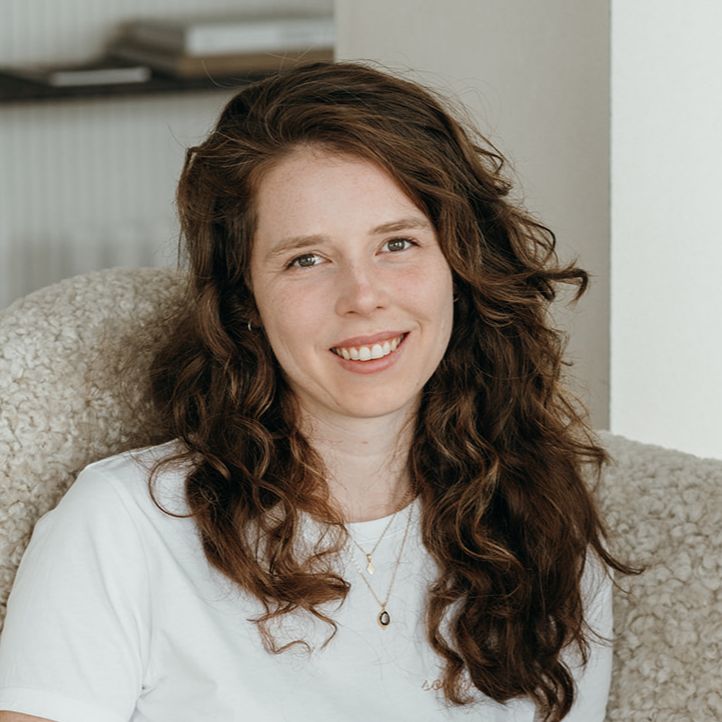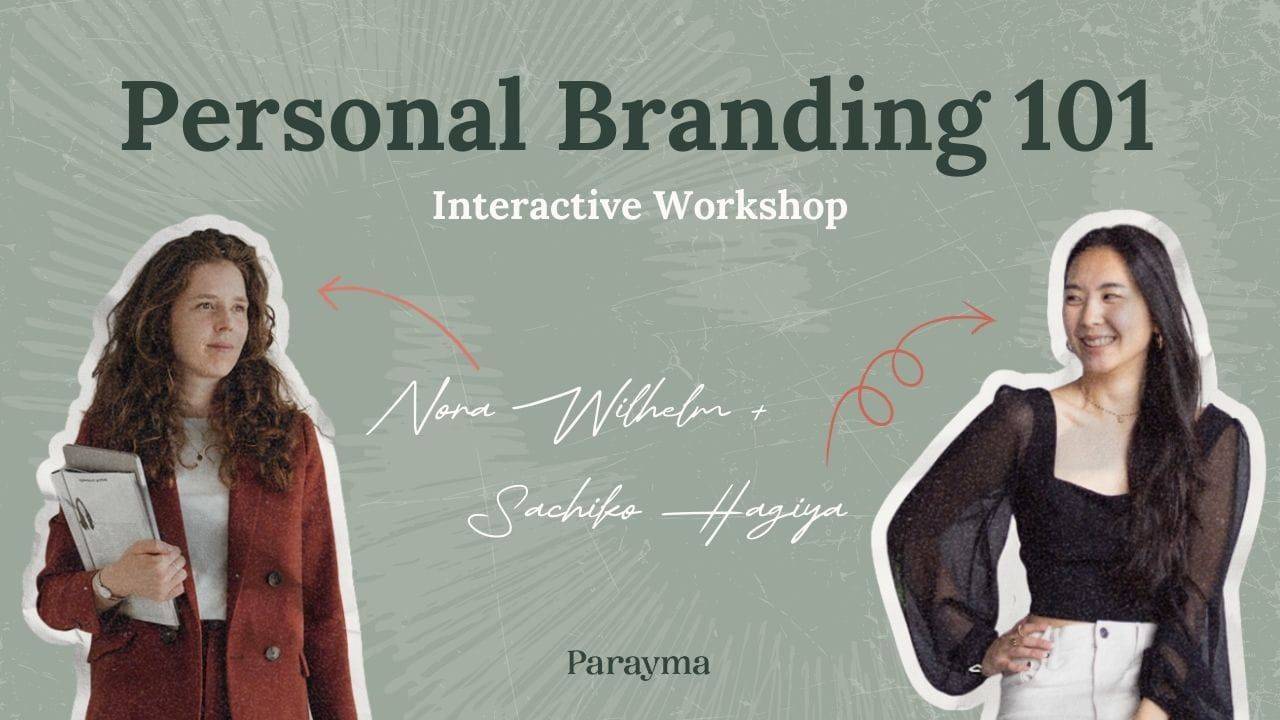10 Grants for Social Entrepreneurs (& How to Win Them)
Jul 01, 2025
As a changeworker committed to systemic transformation, I’ve raised over 4.5 million (CHF/USD/EUR) and helped catalyze another 2 million for other changemakers’ projects. Over time, I’ve learned that securing funding for systems change isn't just about finding the money - it’s about telling a deeper story. This begins with understanding not only what problem you’re tackling, but why it persists, where your strategy intervenes, and how your team, governance, and long-term plan make your solution uniquely powerful. Only then can funders see the purpose - and potential - in what you do.
Below, you’ll find ten of the most impactful grants available around the world in 2025 for social entrepreneurs, paired with a strategic framework you can use to position your work more deeply and genuinely to increase your chances of success in securing funding.
Pro Tip: While it can be helpful and time-saving to use AI when applying for funding, I strongly recommend that you heavily edit and personalize any and all of your submissions. The judges are keenly aware when submissions have used AI and are less likely to view your application positively if it sounds like many others and they perceive a low level of effort went into it.
1. Echoing Green Fellowship
The Echoing Green Fellowship offers $100,000 in seed funding over 18 months, along with wellness and wellbeing support, leadership development, and virtual and in-person connection opportunities. This is a pure grant - no repayment, no equity - designed for early-stage changemakers launching transformational ventures. Echoing Green prioritizes underrepresented leaders with a clear commitment to systemic impact. Applications open September 2025, closing in October or November 2025.
As you consider applying, start with the problem. What social or environmental challenge are you addressing? Use the iceberg model (ex. systemic racism, economic exclusion, climate breakdown), and anchor it in science or local data. Why does this challenge persist - and what dynamics keep it in place? Then, map your ecosystem: who’s already working on this, what interventions exist, and what gaps remain? This is your "uniqueness test". If Echoing Green is going to invest in you, they want to know why you - not someone else - are best placed to solve this.
Your solution pitch should then explain exactly what you'll do, when, and how with theory of change supported by clear steps. If you're delivering direct services - such as workforce training or community gardens - acknowledge that, and outline how you're also shifting mindsets, influencing policy, or redesigning systems. For example: "We train 200 youth monthly while also building partnerships with municipal bodies to embed these programs in public schools."
Finally, introduce your team and strategy. What lived experience, skills, and proven successes do you bring? If you’re co-designing with communities, share who’s at the table and how decisions are shared. Funders respond to teams with integrity, context, vision - and governance that works. Be clear in your budget and timeline about when external funding will taper off or be absorbed institutionally. Showcase relationship strategies - like mentorships, board advisors, or council members - that signal you’re well-supported.
2. Roddenberry Catalyst Fund
The Catalyst Fund makes unrestricted grants of $2,500 to $15,000 to early-stage social entrepreneurs working on global challenges such as climate justice or equity. This rolling program supports individuals and small teams with minimum bureaucracy - no legal incorporation required. The grant is a true catalyst: you get the resources and autonomy you need to experiment. And good news - you can apply no matter what country you’re from.
To apply effectively, start with a compelling problem analysis. Use the iceberg model. For instance, if you’re addressing youth disconnection, go beyond symptoms (loneliness) and examine systemic drivers (digital exclusion, mental health stigma, underfunded services). Explain why previous approaches have failed or stopped short - and why your intervention, grounded in lived experience or context, is truly innovative.
When you outline your solution, clarify your theory of change. What outputs will you deliver with this funding? How many people will you reach, and what change do you expect? Include a complementary strategy (advocacy, policy introduction, awareness building) to signal systems change awareness and to set yourself apart from symptom or service-only projects. Share practical tools, like a post on your website or a co-creation workshop you led. Unbounded by formal legal structures, your story and momentum matter most.
Be sure to highlight your personal journey: why you are uniquely motivated and capable. How have your experiences prepared you for this work? Have you collaborated with community mentors, advisors, or advocacy partners? Be explicit. Funders need to see that their money is not just a test piece, but a stepping stone to deeper impact.
3. SOCAP Fellowship Program
The SOCAP Fellowship is an annual program that provides selected social entrepreneurs with immersive access to SOCAP’s global network of funders, impact investors, and changemakers. Fellows receive exclusive invitations to the flagship SOCAP conference (held annually each October) and are supported in presenting their ventures to potential collaborators and funders. 2025’s conference takes place October 27 to 29 in San Francisco, CA.
Fellows must come from organisations that are:
- For-Profit
- Late-seed- to Series A-stage
- Actively fundraising
- Direct service providers (those that are directly creating impact in the communities that they serve - accelerators, funds, and third-party organisations are not good fits for this program)
- Legally incorporated and have been in operation for at least two years
- Integrating impact as core to their business model
- Introducing a truly unique, sustainable, and scalable solution to a challenging problem
- Looking to raise between $150,000 and $2M USD
- Generating annual revenues of at least $200,000 USD
Apply early because this fellowship has an acceptance rate of less than 10% (about 10 to 15 ventures are selected for each cohort).
To win a SOCAP Fellowship, anchor your application in systemic context. Define the structural challenge you're addressing, such as inclusive clean energy access, equitable financial inclusion, or regenerative agricultural practices. Use the iceberg model to illustrate root causes: what cultural norms, market structures, or capital flows perpetuate inequity? Then, showcase your ecosystem mapping using the 5R Framework, highlighting who’s currently working in this space, who and what’s missing, and why your venture is urgently needed now.
Your project description should include a robust Theory of Change illustrating how your activities (product/service delivery, community engagement, policy advocacy) translate into systemic impact. Emphasize that your work goes beyond direct delivery - perhaps pairing your service with investor education, storytelling campaigns, or regulatory advocacy - signaling both hands-on impact and upstream ambition.
Storytelling is crucial: SOCAP looks for founders with personal insight and strategic credibility. Highlight your lived experience, demonstrated results (e.g., revenues > $200K, legal incorporation, two+ years operation), and ecosystem engagement (pilots, partnerships, advisory roles, ongoing fundraising of $150K–2M). If you’re not from the impacted community directly, demonstrate meaningful co-design with beneficiaries. And since SOCAP offers virtual sessions and funder match-making, mention your readiness to fully participate in their four-month virtual cohort, attend SOCAP in San Francisco in October, and engage transparently - including financial clarity and an exit or scale strategy post-conference.
4. Ashoka Fellowship
Ashoka provides a living stipend for up to three years - no repayable funding, no equity - plus access to their global network of social entrepreneurs. Ideal for changemakers who’ve launched innovative solutions and are ready to embed them deeply in systems.
At this stage, narrate your problem with deep complexity. Describe the systemic dynamics driving it with science, data, policy analysis and reflect on why existing solutions fall short. Show your ecosystem map: reveal who you’ve learned from, who you collaborate with, and where gaps lie. Use the iceberg lens to show that your work is about transforming paradigms, not just patching symptoms.
Share your Theory of Change for systems impact and how your work fits into that. For example: "By providing peer‐led mental health learning and lobbying for public contracts, we are both reshaping school culture and creating municipal policy shifts". These actions and relationships show depth and coherence.
Ashoka invests in vetted changemakers with strong, ethically grounded governance. Highlight your team, lived experience, strategic board, advisors, partnerships, and the “nothing for us without us” principle applied in lived ways. Make your financials and strategic management clear. Show how donor cycles will phase down, and how you’ll maintain impact beyond Ashoka's support. This signals integrity, strategy, and readiness for transformative systems work.
The application process includes 4 steps after nomination, culminating in a board review. This process is rigorous for a reason - they only want to invite the applicants with the most alignment. The selection process looks at 5 key areas: a new idea, creativity, entrepreneurial quality, social impact, ethical fiber.
If you’re excited to take your social entrepreneurship pursuit to the next level but need support from someone who’s been in your shoes, become my newest 1:1 mentee! Based on where you are in your journey, you’ll receive personalized support, expert advice, and the strategies that are working today, not 10 years ago.
APPLY TO PARAYMA’S 1:1 MENTORSHIP
5. Skoll Awards for Social Innovation
This Skoll Award delivers a total of $2 million in funding - unrestricted, systems-focused funding for ventures that go beyond service to shift root causes. Less than 10 organisations are awarded funding each year. Applications open in Q4 2025, with selection early 2026.
Potential awardees are sourced from direct engagement, referrals, and nominations from their network of partners. That’s why, if you want to be considered, you should network and find connections that can potentially recommend your organisation.
To be competitive, you need a compelling problem diagnosis: why does this issue continue? Explain structural dynamics, paradigms - or even economic systems - that maintain it. Funders expect ecosystem insight: who’s working on it, what’s missing, and what paradigm shift your organisation enables.
Organisations are judged based on 6 criteria: potential for change, ability to deliver, impact record, inflection point, proximity, Skoll additionality.
Your solution pitch must be crystal. Show a Theory of Change that links your programs, advocacy, partnerships, and leverage pathways. If your work is still services-based, outline how you’re complementing it with deeper systems interventions: data sharing, policy engagement, storytelling, movements. And crucially, think about how your work can be institutionalized by systems - municipalities, networks, industries - so that you can step back once the system has absorbed your innovation.
Your leadership matters. Spotlight lived experience, credentials, past successes, and ecosystem legitimacy. Describe financial planning - not just budgeting for the award, but showing a roadmap toward operational sustainability. Funders of this scale expect sophistication: clear governance, research and development (R&D), impact tracking, board strength, and scaling plans that reduce dependency on external funding.
6. Global Innovation Fund
GIF offers funding for social entrepreneurs (and others) at amounts up to $230,000 for pilots, and up to $15 million for scale-stage work. These are pure grants, not investments or loans. Applications are open year-round, accepted on a rolling basis with decisions based on your target market, evidence, scaling potential, and team.
Approach your application through the lens of a problem framed through data and policy landscapes. Why does the problem persist? Map out societal dynamics, barriers, and gatekeepers in your ecosystem map. This signals to GIF that you understand the structural context your pilot intervenes in.
Define your pilot with clarity: what are the outputs, expected outcomes, metrics, and how will you test your theory of change? For example: "We will train 50 community health workers, measure referrals per month, and evaluate policy adoption within 12 months." This shows fundability.
Clarify scaling strategy: how will a successful pilot move beyond? GIF funds proof-of-concept and scale. Describe partnerships, cost structures, institutional embedding, and roadmap towards self-sustainability or government adoption. Again, show how external funding becomes temporary while systemic uptake becomes permanent.
7. Cartier Women’s Initiative
This initiative awards $100,000 (1st prize), plus mentorship, training, and coaching, to female/nonbinary-led social enterprises that combine business viability with impact. It’s a pure grant - not investment - and open for entries until June 24, 2025 for the next cohort. Your chances of winning aren’t that unlikely; 3 winners are chosen from 9 different regions of the world.
Your pitch must contain a sharp problem diagnosis: why is your specific issue worth solving? How does it intersect with broader structural patterns? Explain it through a systems change lens - why is your team uniquely able to intervene given these different dimensions?
In your solution, include metrics, measurement, and the Theory of Change. In addition to your business model, outline advocacy or structural strategies that will shift norms at scale. And show how you’ll build a financially sustainable, self-sustaining business integrated with community benefit.
Your leadership story can include lived insight, partnerships, governance, and succession planning. This isn’t just a business, but a movement that this grant’s funding can scale. Demonstrate readiness and resilience.
8. European Social Innovation Competition
Led by the European Innovation Council, this competition offers 5-figure grants to three EU-based ventures aligned around an annual theme. Applications often run March to May, with finalists public in late summer. You must be established in an EU member state to be eligible.
Awards are distributed based on a point system. You’re given points based on your project’s degree of innovation, usability and inclusiveness, positive social impact, viability and sustainability, scalability and replicability, and decentralization and governance.
To succeed, begin with a systems-level problem statement, supported by EU or UN data. Show policy, normative, or economic dynamics entrenching the problem. Then map the ecosystem: which organisations, institutions, mental models exist - and what is your bold deviation?
Highlight your EU-based team’s lived experience, governance, stewardship, and partnerships. Show traction and potential for EU-wide replication. Include a financial workplan - funding phase-out, integration with public or private systems, sustainability pathways - to show that giving you an award is catalytic and necessary.
9. UnLtd UK Awards
UnLtd offers 2 avenues for funding - a Funding Futures Programme for 16 to 30-year-olds and a Millennium Awards Trust for age 16 and older - for UK-based social entrepreneurs who’ve been operating for less than 4 years. Funds are non-repayable and decision-making is rolling throughout the year.
The Funding Futures Programme is limited to a financial inclusion sector focus, whereas the Millennium Awards Trust is open to all sectors. And it’s important to note that you’re not eligible as a social entrepreneur if you’re:
- Looking for funding for a one-off or short-term project where there is limited potential for long-term impact.
- Looking for funding to continue existing activities that have been running for over four years.
- Requesting support which is predominately for the individual to undertake academic qualifications or overseas travel.
- Looking to employ others to undertake most of the work on their behalf.
Applications are processed quarterly throughout the year, meaning you’ll hear back about whether you received an award or not about 1 to 3 months after the end of each quarter.
You should also know that there are 2 different award types - Starting Up (if you’re not yet trading or it’s been less than 1 year) and Scaling Up (if you’ve been trading for between 1 and 4 years).
Watch an introduction to the awards.
10. Ford Foundation BUILD Program
The BUILD program offers multi-million-dollar grants over 5 years, designed to support large-scale systems-change initiatives. Grant funding is unrestricted, not debt or equity. However, BUILD is only open by invitation to current grantees of the Ford Foundation. So if you’re looking for something sooner rather than later, check out their other Ford Foundation grants and fellowships.
Given the scale, your application should articulate a deep systemic insight into the problem, ecosystem mapping, and lever points for structural shift. For example, reforms, paradigm change, and sector transformation. Prioritize clarity about how your work operates within, and beyond, immediate needs. Because this program is over 5 years, the judges will want to see and understand your vision and long-term goals.
You’ll need a strong Theory of Change, including downstream service delivery and upstream influence - advocacy, policy, cultural change. Describe your scaling strategy, with assumptions, milestones, and indicators of when external funding might become unnecessary.
Importantly, you must convincingly demonstrate why you and your team are best equipped. Highlight lived expertise, legitimacy and credibility, partnership networks, governance, fiduciary capacity, and a transition plan. Funders look for durable, accountable, ecosystem-rooted awareness and leadership.
Watch an introduction to the program.
What Comes Next?
- Add your own story using these frameworks. Make your funding narrative compelling, strategic, and systems-aware.
- Match grants to journey stage. Are you just starting? Rooting? Scaling up? Choose grants that align.
- Plan your timeline. Know application windows and give yourself enough time to prepare materials.
- Tap relationships. Board advisors, mentors, peers, or partners can advocate for you.
Systematize your materials. Consider using living docs (ex. budget templates, logic models, ecosystem maps) so you can adapt as needed. Learn from amazing leaders and some of the best social entrepreneurship examples.
If you’re excited to take your social entrepreneurship pursuit to the next level but need support from someone who’s been in your shoes, become my newest 1:1 mentee! Based on where you are in your journey, you’ll receive personalized support, expert advice, and the strategies that are working today, not 10 years ago.
APPLY TO PARAYMA’S 1:1 MENTORSHIP → Start your systems-centered funding journey here.
Applications now open
The Harvest Lab
8-week guided journey for changeworkers, thought leaders, educators, and visionaries ready to shape their lived experience into aligned offerings — and to do it in a way that feels regenerative, not depleting.
Subscribe to The Changework Journal
Get first access to new offers, free or discounted tickets to events Nora speaks at, exclusive access to funding opportunities we source from our network (not shared anywhere else on our channels), and more!



